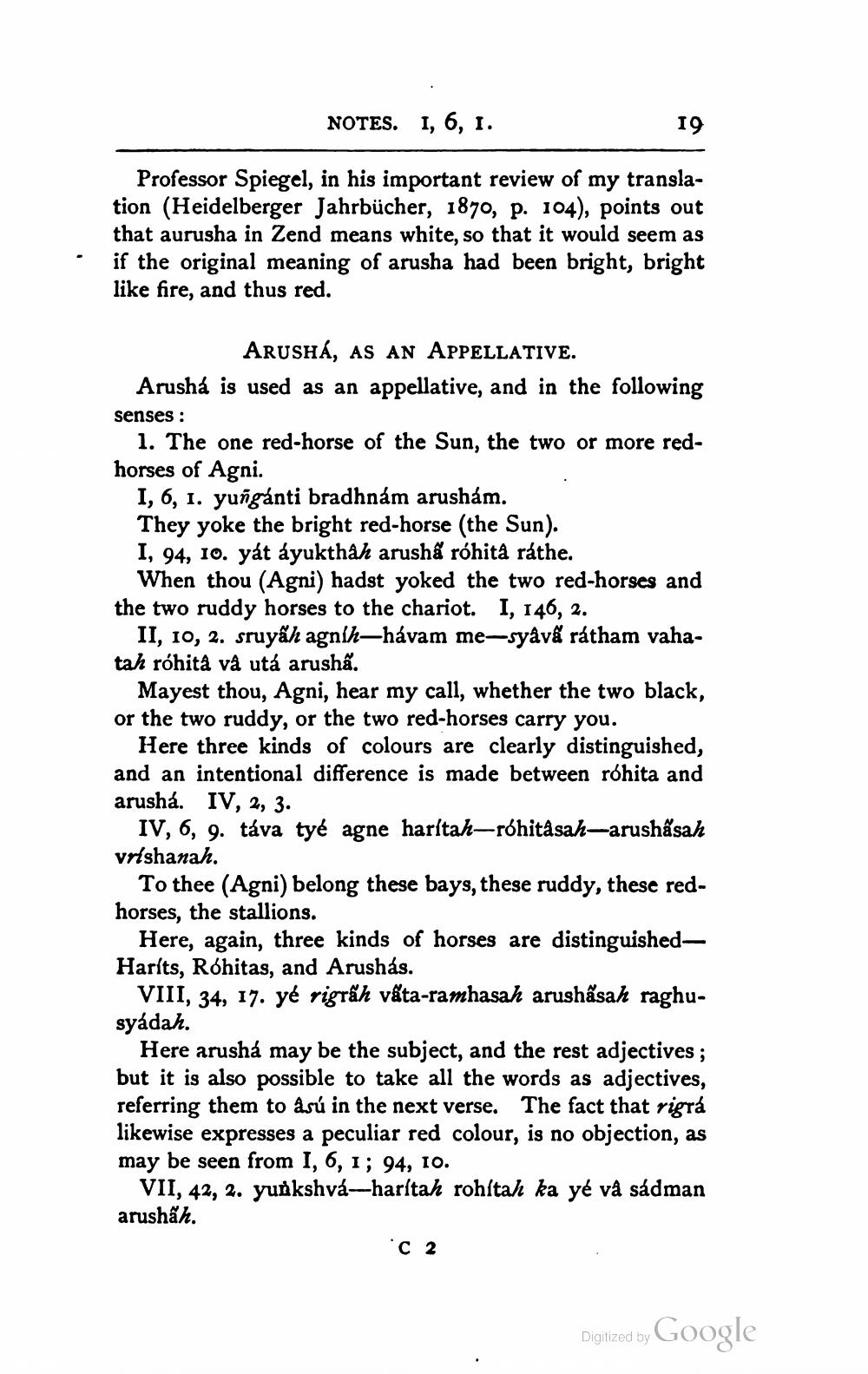________________
NOTES. I, 6, 1.
19
Professor Spiegel, in his important review of my translation (Heidelberger Jahrbücher, 1870, p. 104), points out that aurusha in Zend means white, so that it would seem as if the original meaning of arusha had been bright, bright like fire, and thus red.
ARUSHA, AS AN APPELLATIVE. Arusha is used as an appellative, and in the following senses :
1. The one red-horse of the Sun, the two or more redhorses of Agni.
I, 6, 1. yungánti bradhnám arushám. They yoke the bright red-horse (the Sun). I, 94, 10. yát áyukthåh arushå róhità ráthe.
When thou (Agni) hadst yoked the two red-horses and the two ruddy horses to the chariot. I, 146, 2.
II, 10, 2. sruyah agníh—hávam me-syavá rátham vahatah róhità và utá arushã.
Mayest thou, Agni, hear my call, whether the two black, or the two ruddy, or the two red-horses carry you.
Here three kinds of colours are clearly distinguished, and an intentional difference is made between róhita and arusha. IV, 2, 3.
IV, 6, 9. táva tyé agne harstah-róhitasah-arushấsah vrlshanah.
To thee (Agni) belong these bays, these ruddy, these redhorses, the stallions.
Here, again, three kinds of horses are distinguishedHarlts, Róhitas, and Arushás.
VIII, 34, 17. yé rigrah vậta-ramhasah arushấsah raghusyadah.
Here arusha may be the subject, and the rest adjectives; but it is also possible to take all the words as adjectives, referring them to åsú in the next verse. The fact that rigra likewise expresses a peculiar red colour, is no objection, as may be seen from I, 6, 1; 94, 10.
VII, 42, 2. yunkshvá-harstah rohltah ka yé và sádman arushẩh.
C 2
Digitized by Google




